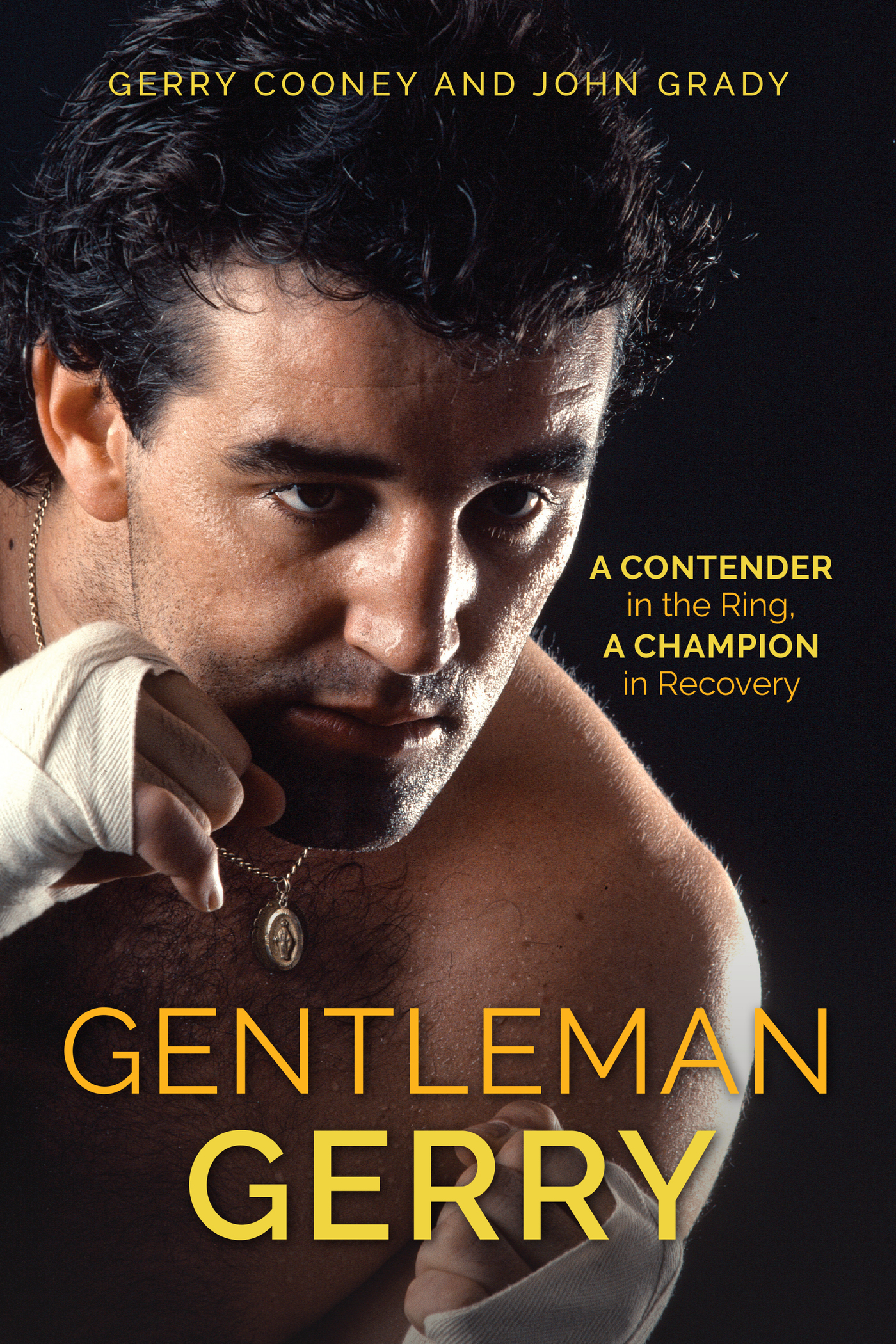Gentleman Gerry
Gentleman Gerry
A Contender in the Ring,
a Champion in Recovery
Gerry Cooney
John Grady
ROWMAN & LITTLEFIELD
Lanham Boulder New York London
Published by Rowman & Littlefield
An imprint of The Rowman & Littlefield Publishing Group, Inc.
4501 Forbes Boulevard, Suite 200, Lanham, Maryland 20706
www.rowman.com
6 Tinworth Street, London SE11 5AL
Copyright 2019 by The Rowman & Littlefield Publishing Group, Inc.
All rights reserved. No part of this book may be reproduced in any form or by any electronic or mechanical means, including information storage and retrieval systems, without written permission from the publisher, except by a reviewer who may quote passages in a review.
British Library Cataloguing in Publication Information Available
Library of Congress Cataloging-in-Publication Data
Names: Cooney, Gerry, 1956, author. | Grady, John, 1976, author.
Title: Gentleman Gerry : a contender in the ring, a champion in recovery / Gerry Cooney, John Grady.
Description: Lanham : Rowman & Littlefield, [2019] | Includes bibliographical references and index.
Identifiers: LCCN 2018054444 (print) | LCCN 2019000352 (ebook) | ISBN 9781538111017 (electronic) | ISBN 9781538111000 (cloth : alk. paper)
Subjects: LCSH: Cooney, Gerry, 1956. | Boxers (Sports)United StatesBiography. | AlcoholicsUnited StatesBiography.
Classification: LCC GV1132.C668 (ebook) | LCC GV1132.C668 A3 2019 (print) | DDC 796.83092 [B]dc23
LC record available at https://lccn.loc.gov/2018054444
 TM The paper used in this publication meets the minimum requirements of American National Standard for Information Sciences Permanence of Paper for Printed Library Materials, ANSI/NISO Z39.48-1992.
TM The paper used in this publication meets the minimum requirements of American National Standard for Information Sciences Permanence of Paper for Printed Library Materials, ANSI/NISO Z39.48-1992.
Printed in the United States of America
In memory of my parents, my friend and great teacher Victor Valle, and my siblings. Thank you for always
being there for me.
Gerry Cooney
To all my loved ones, each contributed to my life in unique and meaningful waysbut especially Mom,
forever my guardian angel.
John Grady
Foreword
Randy Commish Gordon
I saw him win his first championship in the New York Golden Gloves as a tall, skinny middleweight; I saw him lose as a taller, still-skinny light heavyweight; and I saw him win the tournament again as a still-growing heavyweight the year after. But it wasnt until I saw him in a USA vs. Russia meet in 1975 that I knew Gerry Cooney had arrived.
Team USA had chosen many of its best boxers to face the then world-dominant and always rough Russian squad. The man chosen by Team Russia to face Cooney was at least five inches shorter than the Long Island native. However, the Russian was an explosive puncher with both hands. One of his specialties was beating much-taller heavyweights. One of his victims was legendary Cuban star Tefilo Stevenson. The Russians had studied films of Cooney and put in a call to their giant killer.
No problem, was Cooneys feeling about the fight. He was right. It was no problem. A booming left hook to the jaw put the Russian to sleep in the very first round.
With the Olympics less than a year away, Cooney turned his attention to Montreal, the site of the XXI Olympiad. However, when Cooneys dad, Tony, fell ill and then died in 1976, Cooney needed to reset his focus. There would be no Olympics for him. He would take his vaunted power and turn pro, guided by two Long Island businessmen.
When Cooney made his pro debut on February 15, 1977, I was ringside, covering for both World Boxing and International Boxing magazines, where I was the assistant editor. I was ringside for all but two of Cooneys first twenty-six fights, missing his match against Eddie the Animal Lopez in Las Vegas, a bout Cooney won by third round knockout, and his comeback fight in September 1984 against Eddie Gregg.
In the summer of 1979, I became the editor in chief of The Ring magazine. My change in business address also saw a change in Cooneys attitude toward me. At postfight interviews, Cooney always answered my questions, but he did so with short, abrupt answers. To other reporters, hed smile, answer their questions, and even joke around. I wondered why he was nicer to them than me and thought there must be a specific reason for his affection for other sports journalists. After trying from 1980 to 1981through Cooneys power-packed victories over Jimmy Young, Ron Lyle, and Ken NortonI gave up trying to make Cooney like or even respect me. For whatever reason, he felt neither for me.
In late 1981, when a title fight between Larry Holmes and Gerry Cooney was imminent, I received a call from one of the two participants. The caller wasnt Gerry Cooney.
Randy, would you know of any tall heavyweights I can use as a sparring partner as I train for Gerry Cooney? asked Larry Holmes, with whom I had developed the kind of relationship I also wanted to havebut didntwith Cooney. Instantly, I knew of one. His name was Mitch Green, a six-foot, five-inch right-hander from Brooklyn. His nickname was Blood. I called Mitch Greens manager, Shelly Finkel, and he agreed to have his heavyweight join Holmess camp as a sparring partner. Green became an integral part of Holmess preparation for Cooney.
On June 11, 1982, Holmes stopped Cooney in a classic heavyweight title fight. In victory, Holmes provedagainwhat a great champion he was. In defeat, Cooney showed championship heart, skill, and courage. However, Cooney didnt look at it that way. Disappointed with himself, he disappeared from view for the next twenty-seven months.
At the press conference in the summer of 1984 announcing his comeback in September against undefeated Eddie Gregg, I waited until the veteran boxing writers were done interviewing Cooney. I then walked up to him and said hello. With little expression, he nodded. It was the perfect time to ask him a personal question.
Why dont you like me? I asked him. You have been indifferent to me for the last five years. Why?
Cooney looked at me. There was anger in his eyes.
Youve been writing bad things about me for years, he said, his stare piercing my soul.
What? I said. Ive been writing bad things about you?
Nothing could have been further from the truth. If anything, I had consistently made glowing remarks about him in World Boxing and International Boxing, The Ring magazine, and on ESPN and USA Network.
Where have I said or written bad things? I asked.
Looking embarrassed, Cooney said, My managers told me you were writing bad things.
I thought for a moment and then said, Gerry, Ill tell you what. How about I meet you anywhere you want for lunch tomorrow. I will bring every issue of The Ring with me since I became editor in 1979. If you find one bad thingjust oneI will buy lunch. If you cant find anything, you buy! Fair enough?
Fair enough, he said. He then picked a restaurant in a popular Long Island shopping center for us to meet.
I came with a suitcase filled with magazines. He perused many of them. This is what he found: The hardest hook in boxing. A pulverizing jab. Cooney is destined for boxing greatness.
Cooney bought lunch, and we have been friends ever since.
Ironically, I announced his final fight. It was on January 15, 1990, in Atlantic City against George Foreman. Although dejected after losing the fight, there was no more hiding, no more solitary confinement. Gerry Cooney had beaten his demons in many ways, including beating a longstanding problem with substance abuse.
Next page
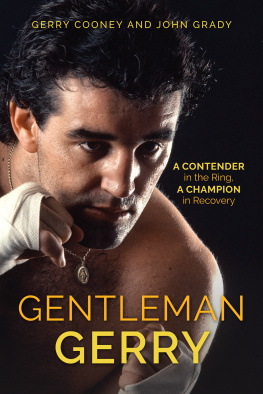
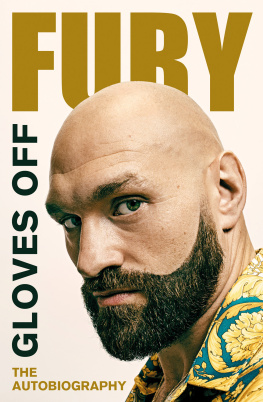

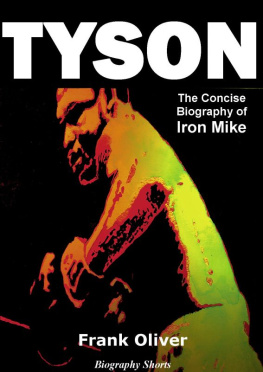
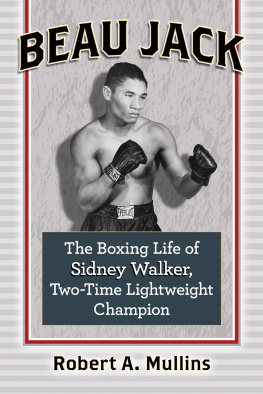
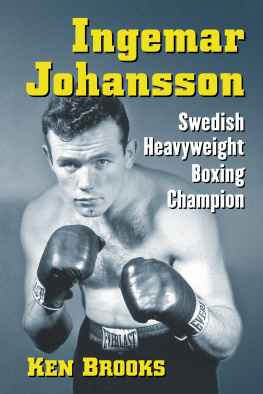
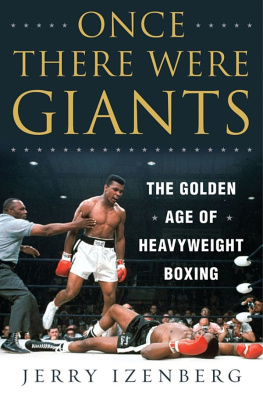

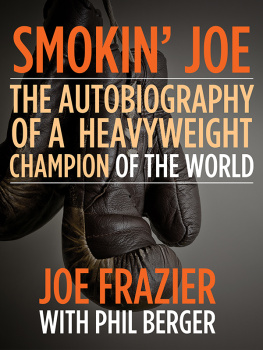
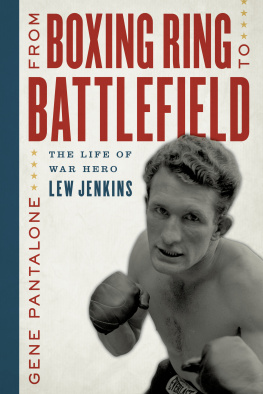

 TM The paper used in this publication meets the minimum requirements of American National Standard for Information Sciences Permanence of Paper for Printed Library Materials, ANSI/NISO Z39.48-1992.
TM The paper used in this publication meets the minimum requirements of American National Standard for Information Sciences Permanence of Paper for Printed Library Materials, ANSI/NISO Z39.48-1992.